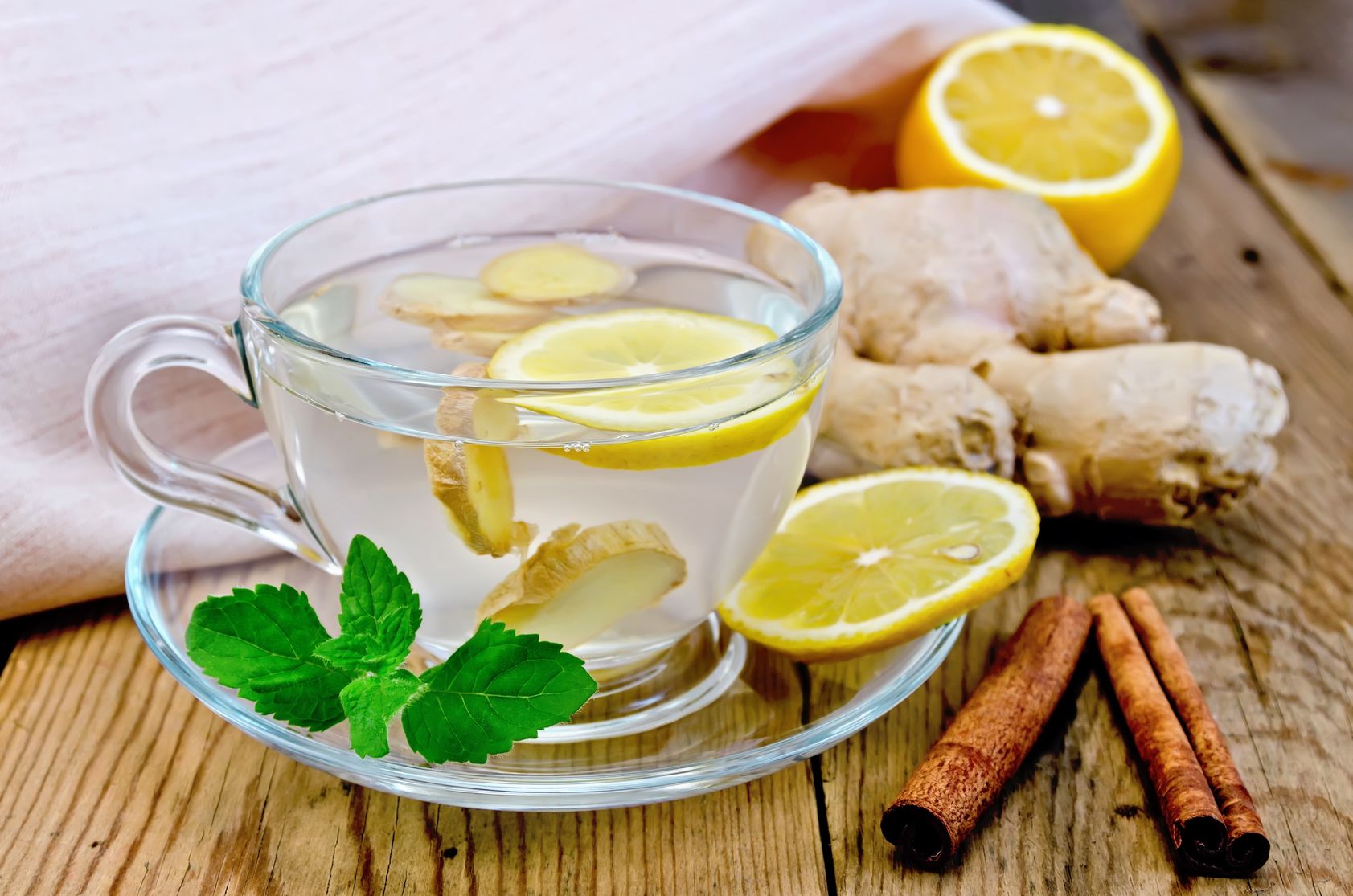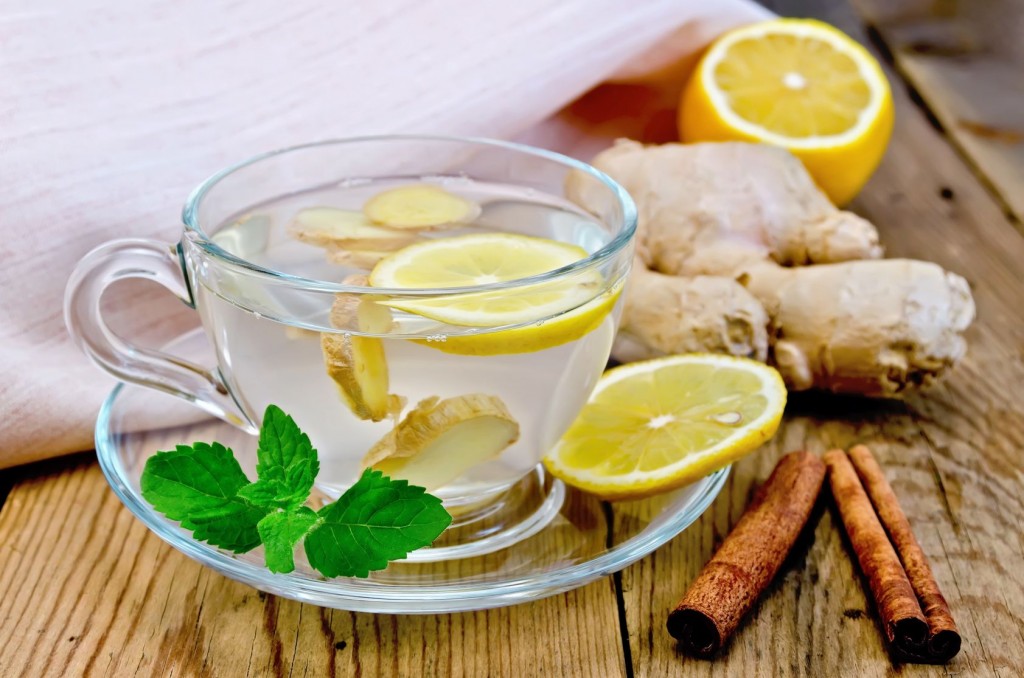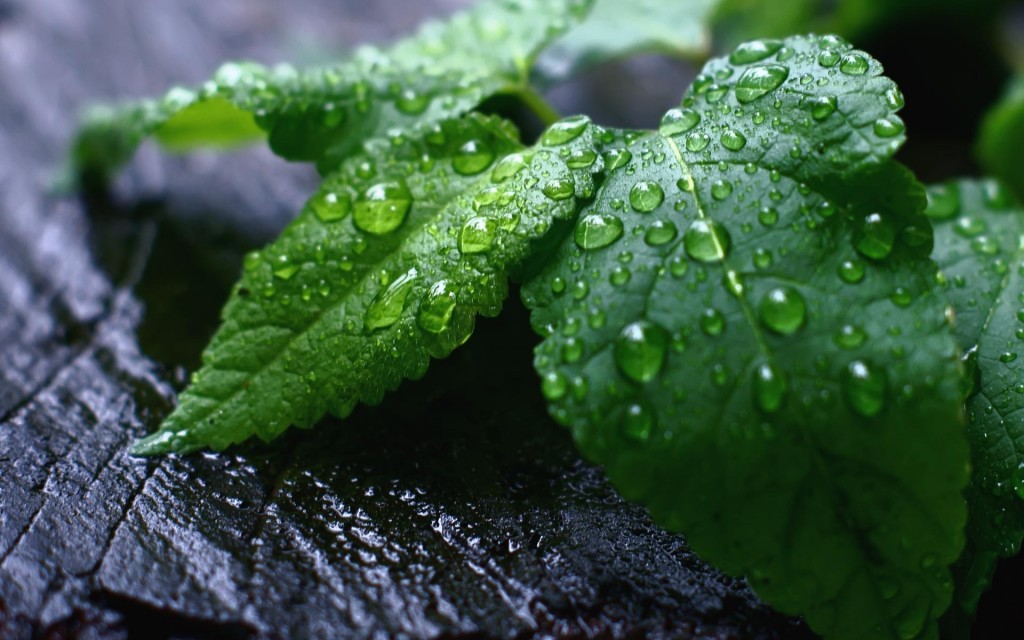
16 Dec Boost your immune system with these homemade healing teas
Staying hydrated during our cold Canadian winters is crucial. Harsh, cool air quickly dries out hair and skin and is hard on the body. On top of drinking enough water daily to make sure your body is hydrated and ready to combat the cold, try warming up with some of these delicious, healing teas.
The best part? Each tea is packed with antioxidant herbs that boost your immune system, and can be made at home on the stovetop in minutes!
1) Ginger tea
Drinking ginger tea is particularly effective if you’re feeling under the weather or are experiencing digestive discomfort. It soothes the throat and stomach and fights bacterial infections – all while gently stimulating your immune system.
Good ginger tea has only two ingredients: filtered water and fresh ginger. You can either slice the ginger into tiny chunks or grate it with a grater/zester. Bring it to a boil in a pot of water, then reduce to a simmer and let it steep.
To boost the flavour, try adding fresh-squeezed lemon, raw honey, pure maple syrup, a cinnamon stick, or a pinch of cayenne pepper.
Why you should drink ginger tea:
- It is loaded with chromium, magnesium and zinc, which help improve blood flow
- It helps improve the immune system
- Ginger prevents and treats cold and flu symptoms, and has been used for thousands of years to treat colds in Asia
- Ginger stimulates gastric and pancreatic enzyme secretion, improving nutrient absorption while decreasing bacterial infections in the stomach
- It aids digestion, and reduces gastric inflammation to sooth a sore stomach
- It may slow the growth of colorectal cancer cells, and has been shown to induce cell death in ovarian cancer cells
- Ginger has also been shown to cure morning sickness and the stomach flu
2) Mint tea
Just like ginger, mint is a healing herb that helps aid indigestion and inflammation. Why? Its aroma has been show to activate the mouth’s salivary glands, stimulating digestive enzyme secretion. It can also be used to treat nausea, headaches, coughs and asthma, and is known to improve oral health.
Again, you only need to use two ingredients: filtered water and a handful of fresh mint leaves. Keep in mind; there are over two dozen species of mind and a hundred different varieties, including peppermint, spearmint and even chocolate mint. Once you’ve selected your leaves, wash and tear them into small pieces to secrete the mint oil. Then steep the leaves in boiling water. Sweeten with some raw honey or sugar, and enjoy the refreshing, stimulating taste of fresh mint!
Why mint is good for you:
- Menthol is a natural decongestant that breaks up phlegm and mucus buildup in the nose, throat and lungs
- It can help reduce abdominal pain and discomfort associated with irritable bowel syndrome (IBS)
- Mint contains the antioxidant rosmarinic acid, which has been shown to aid allergies and hay fever by inhibiting histamines
- It’s a natural stimulant, which has been used to relieve fatigue and depression
- It helps promote good digestion by stimulating gastric and pancreatic enzymes
- It improves oral health



